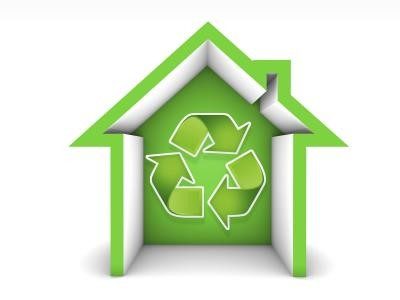When it comes to classifying and recycling garbage, Merlinda Beu Muҫaj, executive director of the NGO “Green Art Center” (GAC) in Prishtina, says that we still have a lot to do.
“We are still a long way from the processes, a long way because we have municipalities that are not in good terms with public companies. We also have public companies that are on the verge of bankruptcy, as well as citizens who do not pay for the services they receive, for garbage taxes. To start the process we need citizens to be fully aware, institutions to be fully aware so it can give further effects for a proper system of garbage management, garbage classifying and recycling,” she says.
The research of GAC shows that presently 98.2% of generated garbage in Kosovo is dumped with no prior classification: in Drenas, for example, approximately 30% of waste is recyclable (plastic, aluminum, paper, and cardboard), whereas in Prishtina approximately 35% of waste could be recycled.
A research study conducted in schools around Prishtina and Gjilan shows that 40-50% of daily waste is recyclable.
In Kosovo there are currently only three companies that deal with waste classification and recycling it: one in Gjilan, one in Mitrovica that opened last year and recycles and processes only one type of glass, and another one in Drenas that recycles plastic.
GAC director, Beu Muҫaj says that in addition to the profit from waste classification, which decreases the quantity of waste, there is environmental profit as well. There is also economic profit, since “developing a waste sector means developing employment.”
Meanwhile, she emphasizes the importance of awareness, not only from them but also from the institutions.
“Awareness has to be peaceful at first, we have to start with slow steps to teach everything, and after a process passes, after some time passes and the systems need to start, then it is the duty of central institutions to implement obligatory forms toward new municipality systems,” says Beu Muҫaj
GAC organized an awareness campaign on this topic as a pilot project, with support from the German GIZ. It was implemented in 2014. Within the framework of this project, new bins and containers were placed, creating “green clubs” in Mitrovica, Gjilan and Prishtina.
“We have started to develop classification systems in all places or for all target groups, including schools, institutions, and different private businesses, small, medium and large,” says Beu Muҫaj.
Agnesa Retkoceri, student at the University of Prishtina, considers waste, and lack recycling, as one of the biggest problems causing our economic development to get stuck, and she doesn’t understand why people litter.
“Neglecting waste recycling negatively affects market development in our country, meanwhile I am not even that informed about the companies that deal with this process. I try to reuse my personal belongings around the house by find them uses other than the ones they were created for,” says Retkoceri.
A 2015 research report on waste consistency conducted by the Kosovo Environmental Protection Agency shows that from the total quantity of waste in cities, most of it is domestic waste, mainly from the kitchen – 58.1%, while 22.7% is recyclable. Data changes when it comes to villages, where waste that comes from the kitchen is 34.2% of the total quantity, while 21.8% is recyclable.
Fatbardha Terpeza










